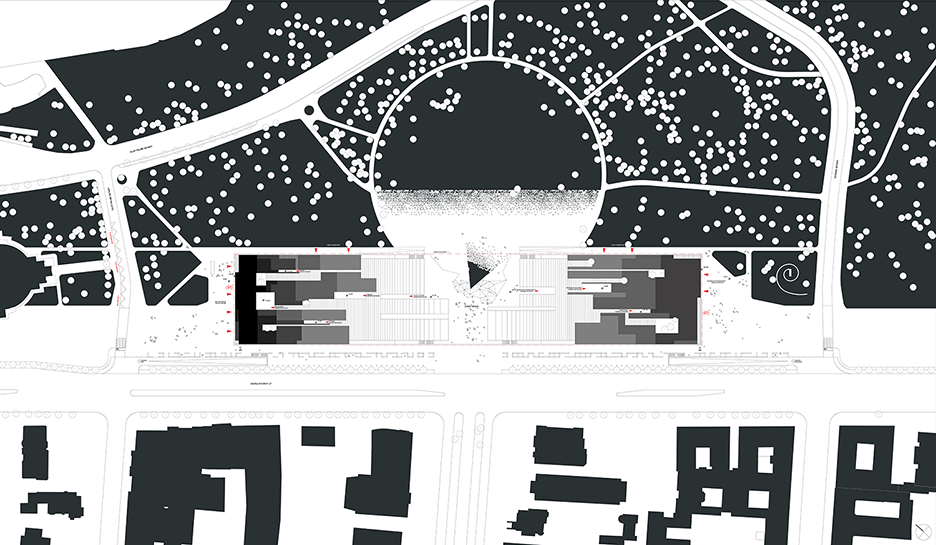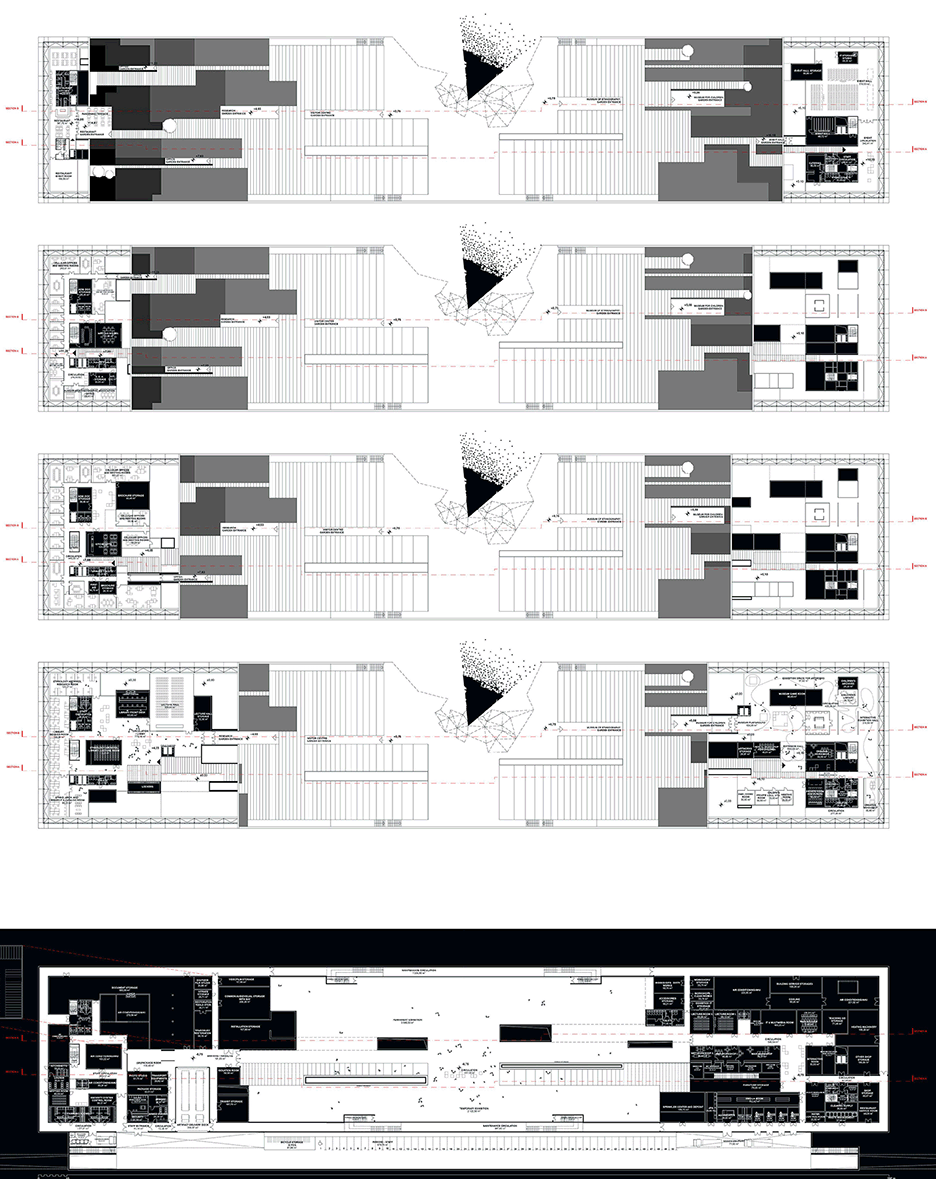Napur Architect wins Budapest museum contest with huge skateboard-ramp design
Hungarian firm Napur Architect has been selected ahead of BIG, OMA and Zaha Hadid Architects to design a major new museum in Budapest's City Park (+ slideshow).
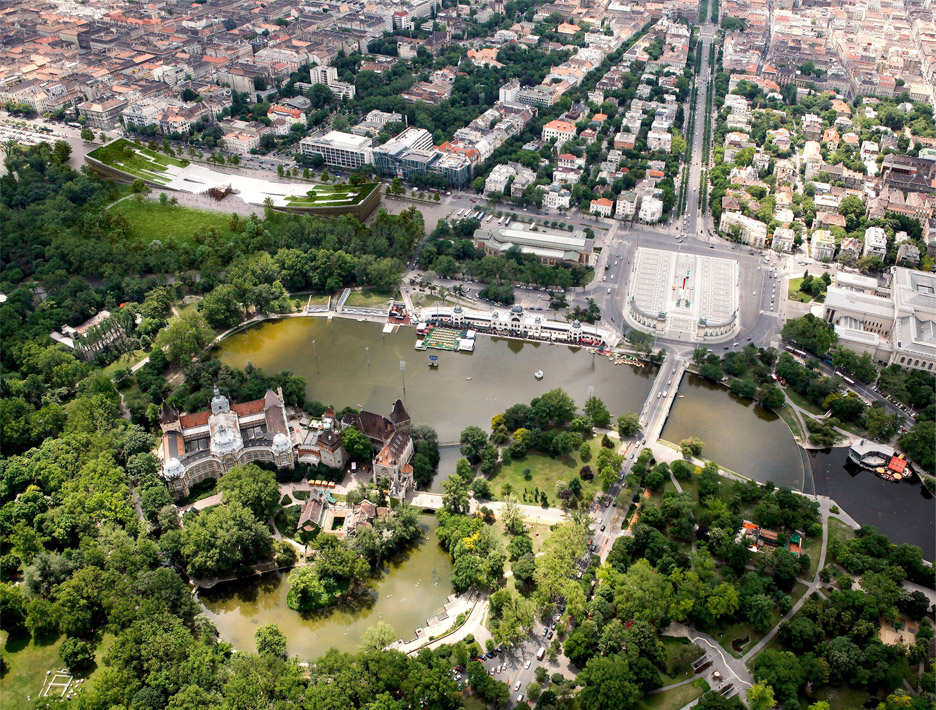
Budapest-based Napur Architect was selected ahead of 14 other firms for the Museum of Ethnography, which will be built alongside a concert hall by Sou Fujimoto and a national art gallery by SANAA as part of a huge new museum complex.
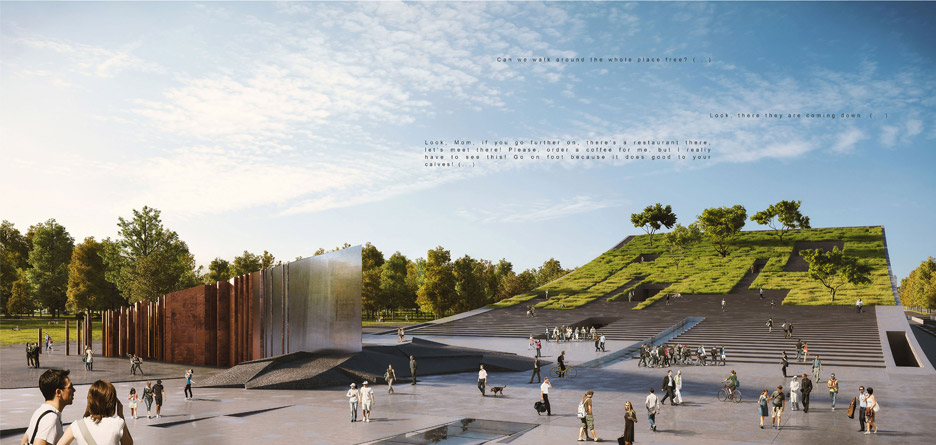
Described by architects István Ferencz, Marcel Ferencz and György Détári as a "21st-century Baroque frame", the design resembles a giant skateboard ramp, with patterned walls and a grass-covered roof.
Called The Gate of the City Park, it will contain several floors of exhibition galleries at both ends and an expansive open space at the centre, while its roof is intended as a new public gathering space.
It was also frame an existing monument to the Hungarian Revolution of 1956.
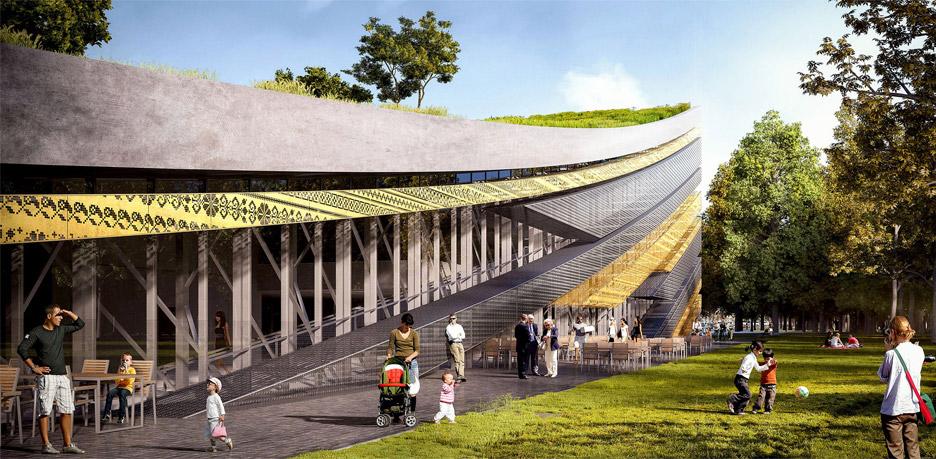
"The Gate of the City Park offers an alternative gate experience," said the architects in their competition entry.
"The physical and visual division of the building into two parts expresses the duality of the basic function, and also reflects the surrounding city fabric."
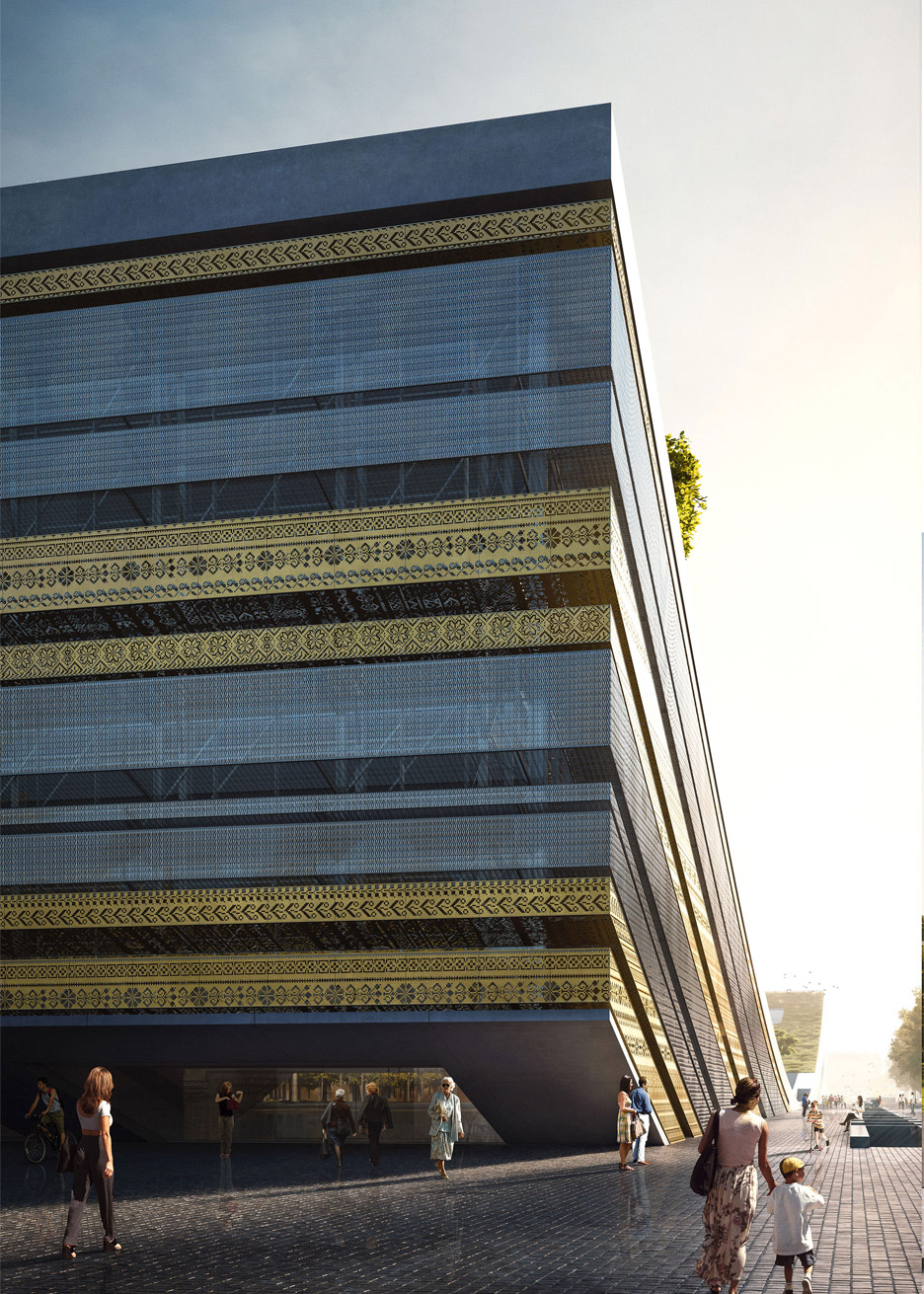
The Museum of Ethnography was established in 1872 and is the foremost institution of ethnographic science, European ethnology and cultural anthropology in Hungary. It is currently located in a Neo-Renaissance palace.
Set to open in 2019, the new building will make it possible to exhibit a much larger quantity of the museum's collections. It will be the first purpose-built structure for the institution in its 144-year history.
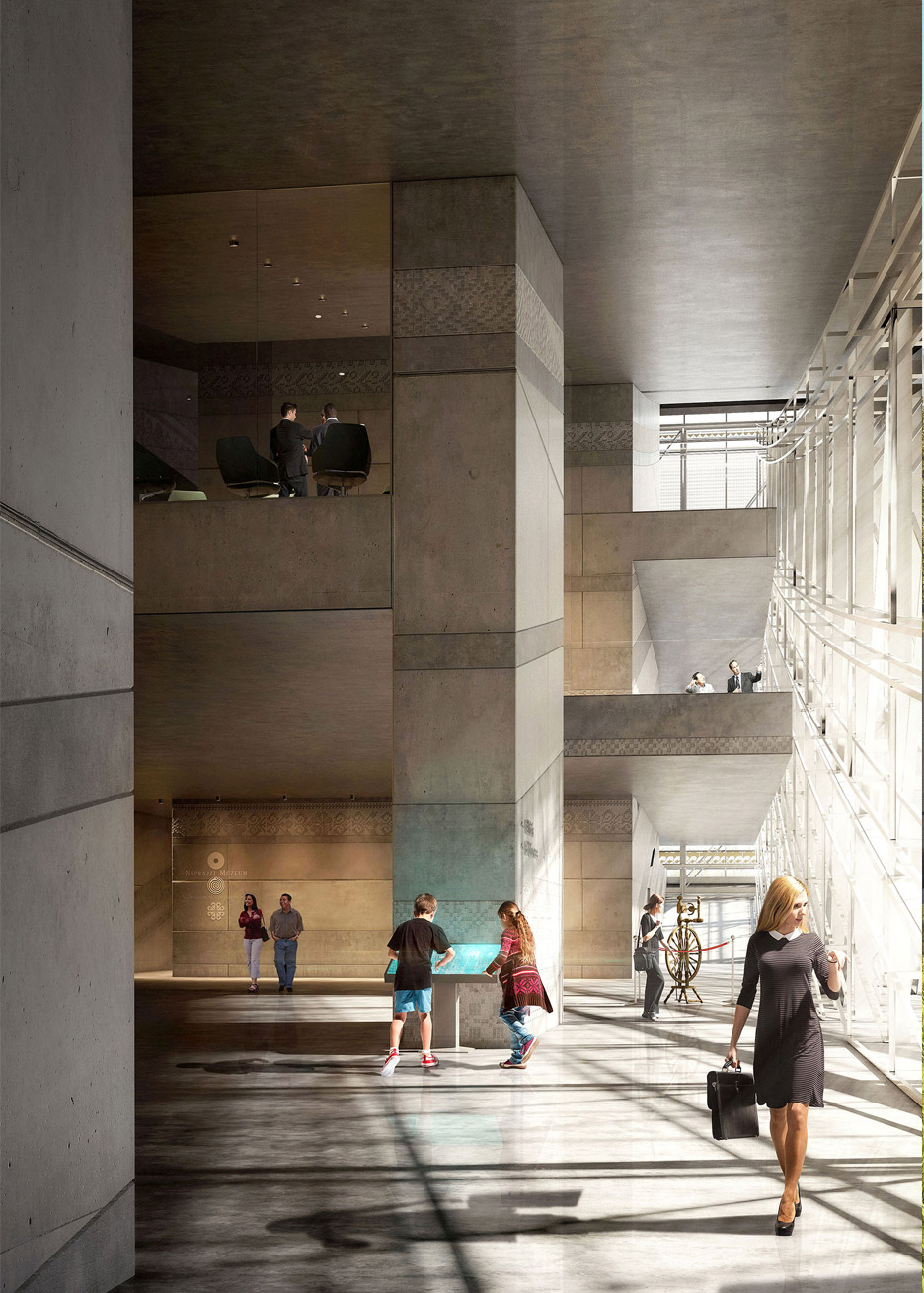
Napur Architect was awarded first place ahead of two runners up – Berlin studio Sauerbruch Hutton and Bjarke Ingel's firm BIG. The shortlist also included MVRDV, Coop Himmelb(l)au, Bernard Tschumi Architects and Dominique Perrault Architecture.
According to the jury, the building will fit in with its environment and create a new icon for the city. Other factors taken into consideration were sustainability, cost and the technological requirements of the collections.
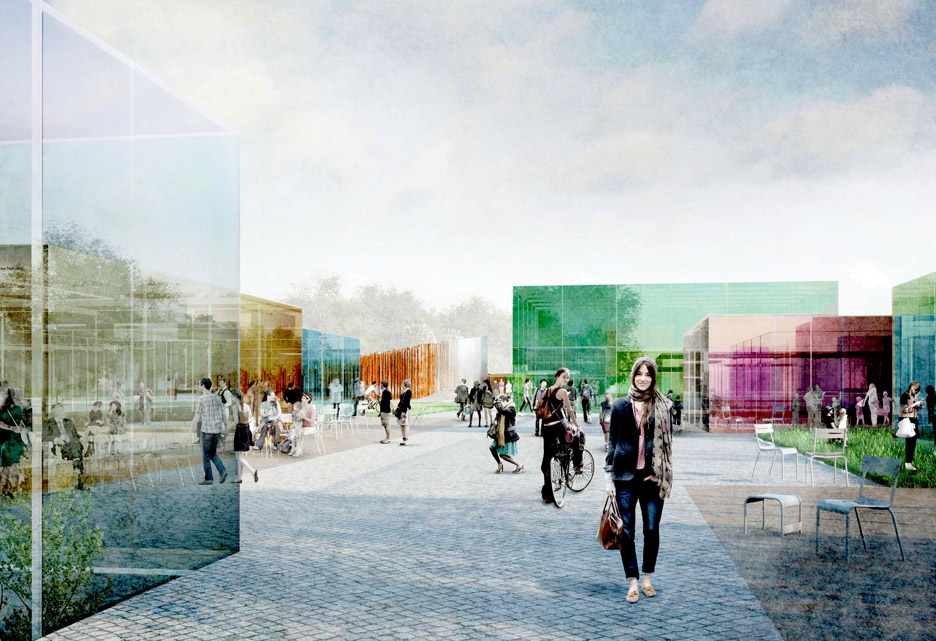
The Museum of Ethnography is the third new building revealed as part of the Liget Budapest Project, one of Europe's largest museum developments. It forms part of a major overhaul of the 122-hectare park, including the revitalisation of the city zoo.
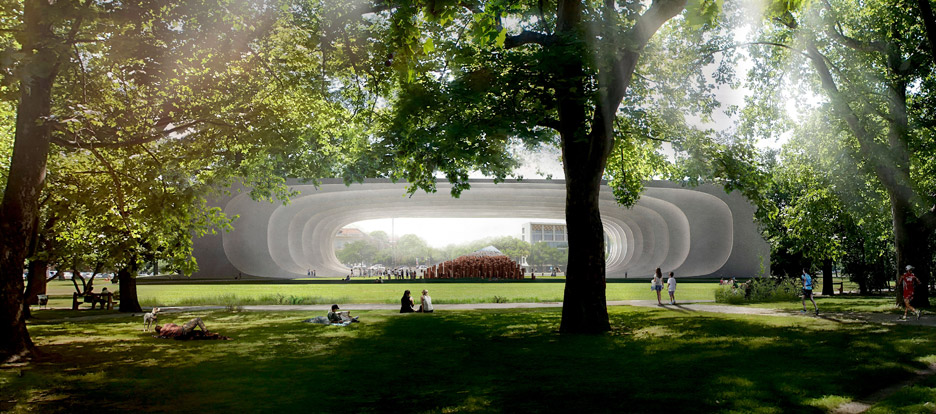
It was originally going to be designed by French studio Vallet de Martinis DIID Architectes, but the plans were scrapped after the organisers changed the proposed location of the building.
Sou Fujimoto won a competition to design the House of Hungarian Music, while SANAA was selected ahead of Snøhetta for the National Gallery of Hungary. A new theatre will complete the project, but an architect has not yet been named.
